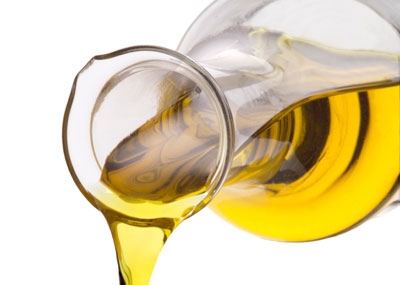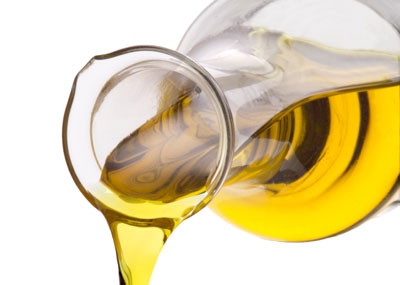
Posts Tagged: Olive oil
LA area olive farm produces oil for local markets

The story focused on Joyce Lukon, who bought a lot with a view of Topanga Canyon as an investment and tried to make it more attractive for resale by planting grapes and olives. She took classes in the sensory analysis of olive oil taught at UC Davis by Paul Vossen, a Sonoma County farm advisor who has been a prime inspiration of the California artisanal olive oil boom, and he later visited several times to advise her.
Lukon now sells her 375-milliliter bottles of olive oil for $25 each at two farmers markets and online.
Debate over groundwater heats up
Tim Hearden, Capital Press
What to do about declining groundwater supplies was the subject tackled by 100 farmers, environmentalists and government officials during an all-day workshop offered by the University of California Cooperative Extension.
"We need to pay attention, we need to be educated and we need folks to talk to their local leaders and help them understand ... both sides of the issue," said Tehama County supervisor Bob Williams, who is an oat and alfalfa hay producer.
Midyear cuts will spare ag programs
Tim Hearden, Capital Press
The $1 billion in midyear state budget cuts announced by Gov. Jerry Brown won't directly affect agencies that assist farmers and ranchers.
The University of California system will use reserves to absorb its sudden $100 million hit, meaning local Cooperative Extension offices will be able to maintain their services, said Dianne Klein, a media specialist on the UC Office of the President communications staff.
"What the university intends to do, on a short-term basis, is draw upon reserves currently held to pay for unexpected cost in employee health and welfare plans," Klein said in an e-mail. "This, in essence, is a rainy day fund. We've declared a rainy day."
There may be other measures to cover the $100 million loss, but using the health plan fund "represents the lion's share of the cost," she said.
California olive oil trade rivals Europe

In fact, the article noted, a recent study by the Olive Center at UC Davis found that 69 percent of imported extra-virgin olive oils bought off the shelves of California supermarkets failed to meet international standards. European producers, however, said that testing supermarket products proves nothing about the relative quality of imported and domestic oils.
“You can’t decide that all imported oils are suspect and dismiss thousands of years of craftsmanship,” scoffed an American expert who farms olives in Tuscany. Critics also question the cultivation and production methods used in California.
UC Cooperative Extension olive oil expert Paul Vossen, who has worked with virtually every olive grower in the state, called that idea “a bunch of baloney.” He said high-density planting currently works only with certain varieties — arbequina and arbosana from Spain, and koroneiki from Greece — but for those, the practice is no different from other kinds of farming.
Early rain complicates walnut harvest
Tim Hearden, Capital Press
Nearly a week's worth of early-season rain in Northern California brought the normally robust harvest of middle and late walnut varieties to a stop. More than half the state's estimated 485,000-ton walnut crop consists of later varieties, many of which got caught in the rain
With growers fearing they might be hit with unfavorable weather during their harvest, some applied etheryl to induce hull split early, said UC Cooperative Extension farm advisor Rick Buchner. Whether or not that was beneficial is "a matter of some debate."
"Some guys were happy to get the husk open because the nut is going to dry faster," he said. "Even if it's laying on the ground, it's drying. That could be an advantage."
Most olive oil sold in the U.S. is mislabled 'extra virgin'
The second and final study of the past year by the UC Davis Olive Center focusing on the quality of "extra virgin" olive oil finds that most olive oil imported into the U.S. fails to meet the international criteria for "extra virgin," according to a news release published today in the Sacramento Business Journal.

Blind sensory testing revealed many imported olive oils labeled "extra virgin" indeed are not.
Consumers like rancid olive oil
A study conducted by UC Davis sensory scientists Claudia Delgado and Jean-Xavier Guinard found that consumers prefer rancid olive oil to the bitter and pungent olive oil favored by experts, said an article in Olive Oil Times. The findings suggest a need for consumer education to keep California olive oil in position for growth.
For the study, 110 consumers rated 22 commercial olive oils. Key findings:
- 74 percent said they disliked the oils identified as high-quality by expert tasters
- Consumers preferred oils with fruity attributes identified as nutty, ripe fruit, green tea, butter, green fruit and grassy
- 44 percent of the consumers liked sensory defects like rancidity, fustiness, mustiness and winey flavor
The story offered a few possible explanations. A large amount of defective olive oil labeled as extra virgin is available to consumers, and the bitter and pungent flavors typical of high-quality oils are an acquired taste.
Director of the UC Davis Olive Center Dan Flynn told reporter Lori Zanteson that California consumers have much to learn about olive oil flavor profiles
"A bitter profile is not necessarily bad," Flynn was quoted. “All these discussions and the availability of quality oils are contributing to this slowly growing knowledge that the consumer has.”
The research report, “How do consumer hedonic ratings for extra virgin olive oil relate to the quality ratings by experts and descriptive analysis ratings?” appears in the March 2011 issue of Food Quality and Preference journal.
In their article, Delgado and Guinard predict the California olive industry will be poised for exponential growth "as consumers learn about the many nutritional benefits and sensory qualities of extra-virgin olive oil."

Good olive oil is an acquired taste.
California olive oil production could soon be among the world's Top 10
With olive trees planted in 2008 beginning to come into production, Cooperative Extension olive expert Paul Vossen predicts this year's California olive oil crush will be the highest ever, according to an article in The Olive Oil Times.
Producers are expected to squeeze 4.5 million liters of oil from olives harvested in California.
The rapid planting-to-milling rate is a result of super-high-density planting. Traditionally, about 100 olive trees were planted to the acre. With the new system, 500 trees are planted to the acre in hedgerows, which come into production more quickly and allow for efficient mechanical harvesting.
Reporter Lori Zanteson also spoke to Dan Flynn, director of the UC Davis Olive Center. He said people are consuming more olive oil each year. Increased production in California means there are larger supplies of high quality oil to meet the demand.
In fact, high-density planting has the state's olive oil production growing at such a rate that Flynn believes California could rank among the world’s top ten olive oil producers within the decade.

Olive oil production.